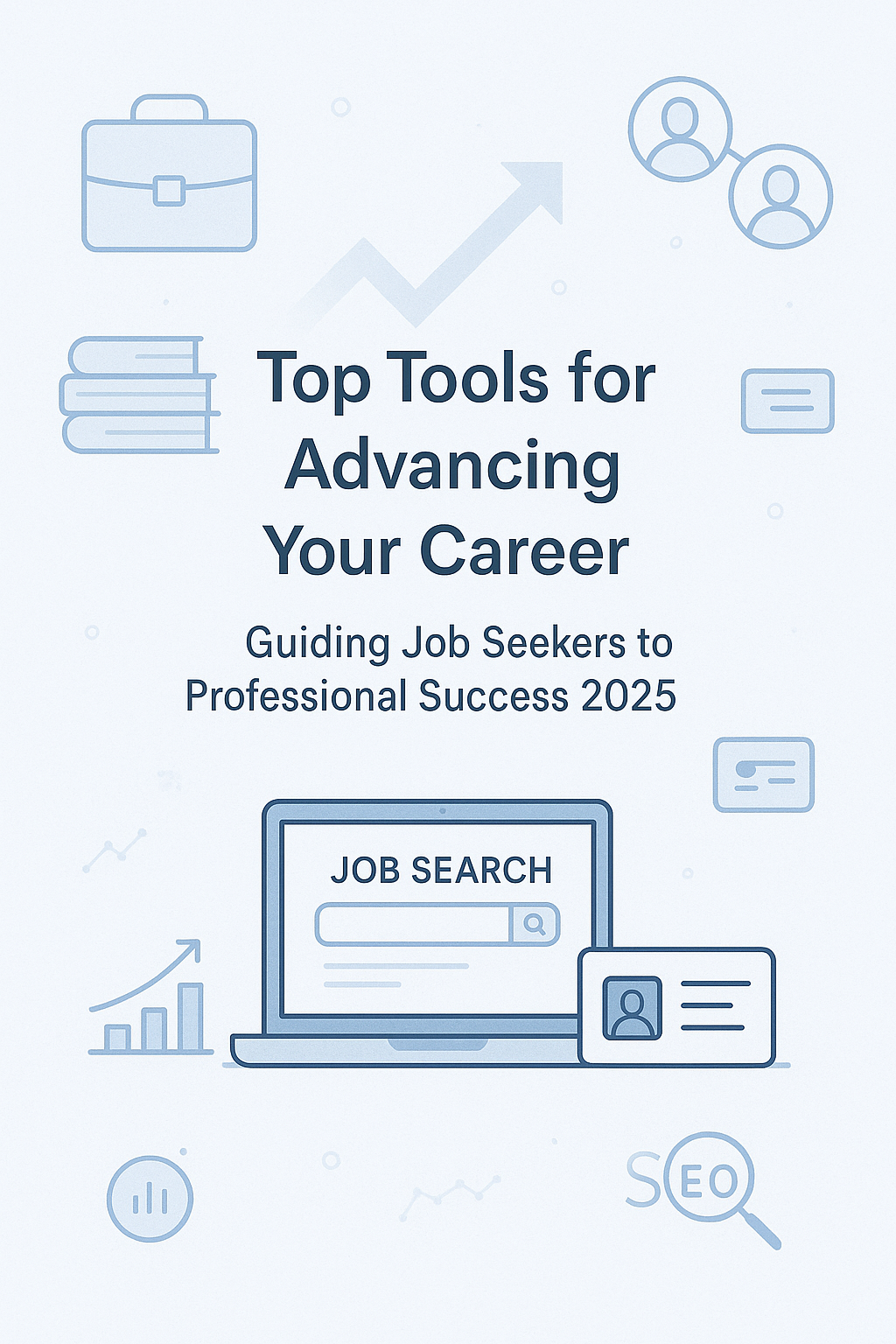In 2025, the job market is more dynamic and competitive than ever before. With advancements in technology, changing employer expectations, and global economic shifts, today’s job seekers must be agile, tech-savvy, and purpose-driven. Whether you’re entering the workforce, switching careers, or re-entering after a break, this guide offers proven strategies, practical tools, and insights to help you achieve professional success in 2025.
Why the Job Market in 2025 is Different
The landscape of employment has undergone significant changes due to automation, remote work, sustainability trends, and a growing emphasis on skills over degrees. Employers are seeking adaptable, lifelong learners who bring value beyond technical proficiency.
Key changes in 2025 include:
- Hybrid and remote-first workplaces
- Rise of the gig and freelance economy
- Employer branding and cultural fit
- Emphasis on soft skills and emotional intelligence
- Integration of AI in recruitment and work environments
1. Self-Assessment: Understanding Your Strengths and Goals
Before launching your job search, take time for self-assessment. Understanding your values, interests, skills, and personality traits is foundational to choosing the right career path.
Tools for Self-Assessment
- Myers-Briggs Type Indicator (MBTI)
- CliftonStrengths (formerly StrengthsFinder)
- Holland Code (RIASEC)
- CareerExplorer or 123Test Career Aptitude Test
Tips:
- Define short- and long-term goals
- Identify industries aligned with your passions
- Seek feedback from mentors or coaches
2. Resume and Cover Letter Optimization for 2025
Gone are the days of one-size-fits-all resumes. In 2025, your application materials must be tailored and ATS-optimized (Applicant Tracking System).
Best Practices:
- Use clear, keyword-rich job titles
- Include quantifiable achievements
- Customize each cover letter to the job
- Keep formatting simple and clean
Resume Trends in 2025:
- Digital portfolios and personal websites
- QR codes linking to work samples
- Video introductions or bio snippets
Pro Tip: Use tools like Zety, Resume.io, or Jobscan to ensure your resume aligns with specific job descriptions.
3. Mastering LinkedIn and Online Branding
Your online presence is often the first impression employers get. In 2025, a polished LinkedIn profile is non-negotiable.
Must-Haves on LinkedIn:
- Professional headshot
- Compelling headline and summary
- Skills endorsements and recommendations
- Regular content or article sharing
Other Platforms to Leverage:
- Twitter (for thought leadership)
- GitHub or Behance (for creatives/tech roles)
- Medium or Substack (for writing portfolios)
Building a Personal Brand:
- Define your unique value proposition
- Use consistent visuals, language, and messaging
- Share insights, not just updates
4. Networking: Still the #1 Job Search Strategy
According to recent studies, up to 80% of jobs are filled through networking. In 2025, it’s about authentic relationship-building—not just asking for favors.
Where to Network:
- LinkedIn groups and forums
- Virtual conferences and webinars
- Alumni associations
- Industry-specific Slack or Discord communities
How to Network Effectively:
- Give before you ask
- Personalize connection requests
- Conduct informational interviews
- Follow up and stay in touch
5. Navigating Job Boards and Platforms
While networking is powerful, job boards still matter—especially niche platforms.
General Job Boards:
- Indeed
- Glassdoor
- Google for Jobs
- LinkedIn Jobs
Niche Platforms for 2025:
- FlexJobs (remote/flexible jobs)
- AngelList Talent (startups)
- Climatebase (sustainability careers)
- Toptal, Upwork (freelance/gig work)
Tip: Set up alerts and be among the first applicants to increase your chances.
6. Upskilling and Certifications: Staying Competitive
To stay relevant in 2025, continuous learning is essential. Online learning platforms make it easier than ever to develop new skills.
In-Demand Skills:
- AI and machine learning
- Data literacy and visualization
- Cybersecurity
- Emotional intelligence and leadership
- Sustainable business practices
Top Learning Platforms:
- Coursera
- edX
- Udemy
- Skillshare
- LinkedIn Learning
Pro Tip: Look for certifications endorsed by top companies or professional organizations.
7. Preparing for Interviews in a Hybrid World
Video interviews are now standard. In 2025, employers also use AI to assess tone, confidence, and even facial expressions.
Interview Preparation Checklist:
- Research the company thoroughly
- Prepare STAR-based answers (Situation, Task, Action, Result)
- Practice on video platforms like Zoom or Interviewing.io
- Dress professionally—even for virtual calls
Common 2025 Interview Formats:
- Pre-recorded video questions
- Skills assessments or project tasks
- Group or panel interviews via Zoom
8. Mental Health and Resilience in the Job Search
Searching for a job can be stressful. In 2025, mental health is a recognized component of career success.
Tips for Staying Mentally Strong:
- Set realistic daily job search goals
- Take breaks and avoid burnout
- Practice mindfulness or journaling
- Seek professional support or coaching if needed
9. Career Coaches and Mentors: Getting Expert Guidance
Investing in career coaching or finding a mentor can accelerate your job search.
What Coaches Help With:
- Career clarity and confidence
- Resume and interview strategies
- Salary negotiation and offer analysis
Finding a Mentor:
- Use LinkedIn Alumni tool
- Attend virtual industry events
- Join mentorship platforms (e.g., MentorCruise, SCORE)
10. Following Up and Evaluating Offers
How you follow up can set you apart. Also, evaluating offers in 2025 involves more than just salary.
Follow-Up Best Practices:
- Send thank-you emails within 24 hours
- Reiterate your enthusiasm and fit
Offer Evaluation Checklist:
- Salary and benefits
- Work-life balance and flexibility
- Company culture and values
- Growth opportunities
Your Roadmap to Success in 2025
Professional success in 2025 is about more than just landing a job—it’s about finding meaningful, sustainable work that aligns with your skills, passions, and lifestyle. By following the strategies in this guide—self-assessment, upskilling, branding, networking, and resilience—you’ll be equipped to thrive in the evolving landscape.
Stay adaptable, stay informed, and stay connected. The future of work is bright for those who are prepared.
